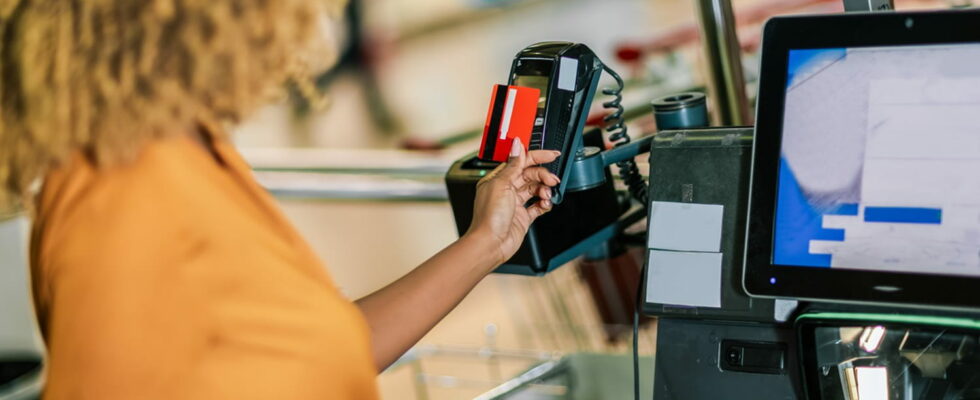With prices rising, more and more customers are tempted to “forget” to scan their items at supermarket checkouts. But one retailer has found a way to counter this problem.
Self-checkouts offer many benefits, including saving consumers valuable time and allowing retailers to reduce labor costs. But they do have one drawback, and not a small one: Self-checkout kiosks are where the most fraud is seen in stores. Because when you scan your items yourself, it can be tempting to not pay for everything.
For some, stealing from self-service checkouts has even become a habit, whether to save a few euros, out of rebellion or for the thrill of it. All you have to do is pretend to scan a product or accidentally “forget” one in your basket. Others don’t hesitate to weigh their items as if they were fruits and vegetables in order to benefit from a preferential price. A tip widely shared on social networks!
Supermarkets are scrambling to find solutions to this problem, which is reducing their turnover. Some are choosing to post employees to monitor self-checkouts and potential fraudsters. In La Farlède, in the Var department, a store is testing a new video surveillance system. As Le Parisien reports, cameras are trained on consumers’ hands as they unpack their groceries and pass the products in front of the scanner in order to detect those that have not been registered.
The device is based on “smart” cameras associated with image processing software. Thus, if they detect suspicious behavior, they then display a message to the customer: “Are you sure you haven’t forgotten anything?” If the consumer persists in not scanning the product in question, the cash register is automatically blocked and an operator must come and unlock it. In case of doubt, the device can even allow a few minutes of video to be reviewed to remove any suspicion.
So far, the system has proven to be quite conclusive. According to the brand, it has reduced the number of errors by 50% and, out of around 300 to 400 daily passes, has not recorded any incidents. However, this does raise some legal questions regarding data protection. While the manufacturer, Diebold Nixdorf, assures that the customer and confidential data are blurred, the National Commission for Information Technology and Civil Liberties (CNIL) has nevertheless expressed concern in the past about the use of similar video surveillance software, created by the start-up Veesion, judging that the latter did not respect the protection of personal data. The use of algorithmic video surveillance is still in its infancy and, consequently, the only legal text governing it is the Olympic law. Any other device can therefore be considered illegal…
